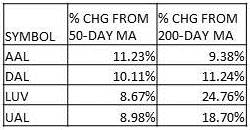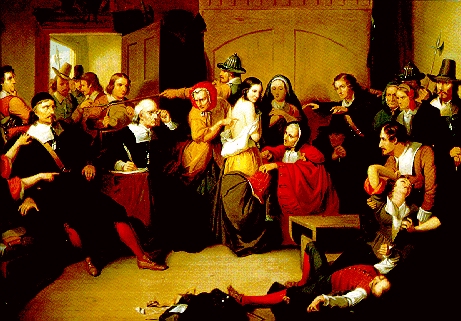When I first read of the survey (one story on it linked here) of how members of the public consistently overestimate the percentage of gays in the general population, I was not terribly surprised. Dismayed, yes as it appeared that the younger cohort estimated the proportion of gay to straight at almost a third, which I thought would have run slap up against that cohort’s observation of the world around them. The actual percentage is round and about two percent, which tracks with my own real-world observation but I can hardly blame the kids for assuming a much higher figure, knowing how many media creations prominently feature gay characters. Looking at TV shows, movies, books, games, the celebrity culture … one might very well assume that ‘gay’ constitutes a much larger portion of public space than they actually occupy, on a strictly numerical basis. The various media reflect ‘gay’ at several times their normal size. Like my neighbor’s basset hounds; it’s not that there are many, but the bassets are so very loud, a casual observer might assume that there are many more, based on the racket.
Current Events
Rape Culture
The country is going through one of the increasingly common episodes of hysteria in modern times. In the 17th century, there was the period of The Salem Witch Trials.
From June through September of 1692, nineteen men and women, all having been convicted of witchcraft, were carted to Gallows Hill, a barren slope near Salem Village, for hanging. Another man of over eighty years was pressed to death under heavy stones for refusing to submit to a trial on witchcraft charges. Hundreds of others faced accusations of witchcraft; dozens languished in jail for months without trials until the hysteria that swept through Puritan Massachusetts subsided.
The episode was begun by what sounds like hysterical symptoms occurring in the daughter of the new minister. Before it was over, a number of people of the village of Salem had been accused of witchcraft and 19 were executed and five others had died.
Suspected witches were examined for certain marks, called “witch marks,” where witches’ “familiars” could nurse. The hysteria ended as quickly as it began. By the end of 1692, it was over and all surviving accused were released.
The period of the hearings in America after World War II, in which many were accused of being communists, the so-called “McCarthy period,” is often compared to this era and a left wing playwright, Arthur Miller, wrote a play called “The Crucible,” which made the connection between the Salem trials and Senator McCarthy’s accusations the theme.
Don’t Panic: A Continuing Series – The Enemy Within
And yet there are signals of personal defeat which are like red lamps on broken roads, to these we must pay heed. I grew anxious when a man’s speech began to betray him; when he was full of windy talk of what the Boche had done in the new sector the battalion was taking over, of some new gas. It was always about something which was going to happen; the wretched fellow must have known the mess would muzzle him if it could, but he seemed driven by some inner force to chatter incessantly of every calamity that could conceivably come to pass. It was as if he had come to terms with the devil himself, that if he could make others as windy, his life would be spared. How full of apprehension the fellow was; death came to him daily in a hundred shapes. This was fear in its infancy. It was a bad sign, for when a man talked like that, his self-respect was going, and the battle was already half lost. It was just a matter of time. Such a man did the battalion no good for the disease was infectious; I was glad to get him away.
Lord Moran, The Anatomy of Courage
[Readers needing background may refer to the earlier members of this series, Don’t Panic: Against the Spirit of the Age; Don’t Panic: A Continuing Series; Don’t Panic: A Continuing Series Ebola or Black Heva?; and Don’t Panic: A Continuing Series Ebola Realities and the True Test.]
Not everyone is helpful in what Strauss and Howe call a Crisis Era. This is not a matter of ability or resources, but of attitude. I have recently encountered numerous highly intelligent, capable, and often firmly upper-middle class men who at the slightest provocation vehemently insist that the United States is doomed. This year alone, they have predicted at least three of the last zero national calamities. Repeatedly failed scenarios make no impression on them. Some of these people are actually planning to run and hide somewhere.
Obama’s Amnesty
I am not happy about Obama making his speech about amnesty and defying the GOP newly elected Congress to do anything about it. However, there is less here than it seems.
First: And to those members of Congress who question my authority to make our immigration system work better or question the wisdom of me acting where Congress has failed, I have one answer: Pass a bill. I want to work with both parties to pass a more permanent legislative solution. And the day I sign that bill into law, the actions I take will no longer be necessary.
I don’t believe him but the GOP could do worse than assume this is true. The next steps would be to take actions assuming he was not lying.
Obama clearly wanted to make himself look like the compassionate actor in this debate, and Republicans the heartless, cruel nativists. Instead of trying to fight that battle, make Obama own it and bypass it for the real battle the GOP wants to win on border security. Make Democrats vote against a border security bill, and make Obama veto one while his own amnesty remains in place.
Not everybody is willing to accept this as a phony gesture which I think it is.
When President Obama announces that he will be suspending laws to bless the illegal presence of millions of foreigners in the United States, he will have adopted the most basic philosophy of John C. Calhoun: some laws can be tossed aside because his ends justify the lawlessness.
I don’t trust Obama’s intent but I think he is a fool and did not plan this correctly, or else chickened out. There is more interesting comment at Powerline today.
Procedurally what happens is an undocumented person applies for ‘deferred action’ and then after receiving this ‘quasi-status’ he/she is eligible for work authorization.
See the last paragraph on page 4 of this key memo: “Applicants must file the requisite applications for deferred action pursuant to the new criteria described above. Applicants must also submit biometrics for USCIS to conduct background checks similar to the background check that is required for DACA applicants. Each person who applies for deferred action pursuant to the criteria above shall also be eligible to apply for work authorization for the period of deferred action, pursuant to my authority to grant such authorization reflected in section 274A(h)(3) of the Immigration and Nationality Act.”
I still think the Republicans can trump this with real reform. Then they can send a bipartisan bill to Obama and see if he vetoes it. That Powerline post also emphasizes that Silicone Valley is pushing this and that explains their support of Obama.
How many Senate Democrats would be willing to sustain that veto before the 2016 election? I’m betting not too many. But Republicans have a perfect opportunity to turn the debate in that direction now and force Obama and his shrinking number of allies on Capitol Hill to go on the record.
Don’t Panic: A Continuing Series – Ebola Realities and the True Test

Although the false alarms might continue for a few more weeks, we have obviously transitioned into the lessons-learned phase of the Ebola non-outbreak in the US. I will list those lessons below, but first, a useful summary of a talk I attended on the evening of Tuesday the 4th.
[Readers needing background may refer to the earlier members of this series, Don’t Panic: Against the Spirit of the Age; Don’t Panic: A Continuing Series; and Don’t Panic: A Continuing Series Ebola or Black Heva?]
The venue was the Johnson County Science Café, a monthly forum sponsored by Kansas Citizens for Science. Johnson County is, by some measures, the wealthiest county in the country outside of the DC and NYC metro areas; greatly simplifying, this is a product of a somewhat unique combination of blue-state salaries and red-state cost of living. Kansas Citizens for Science was founded in the wake of upheavals on the Kansas Board of Education, which resulted in the initial imposition of, and subsequent drastic changes to, science-curriculum standards for public primary and secondary schools for ~300 school districts half a dozen times between the early 1990s and mid-2000s. The most famous was a 1999 board vote to remove key questions about the historical sciences (including astronomy, geology, and paleontology) from assessment testing, but there were several others which either re- or de-emphasized those sciences as the makeup of the board fluctuated with each election. After a decade and a half of chaos, as of now the board is relatively quiescent its makeup was ironically substantially unaffected by this month’s wave election and teaching and testing of the historical sciences is in place. I know several of the key personalities involved, and could certainly tell some interesting stories, but that controversy is not the subject of this post.

